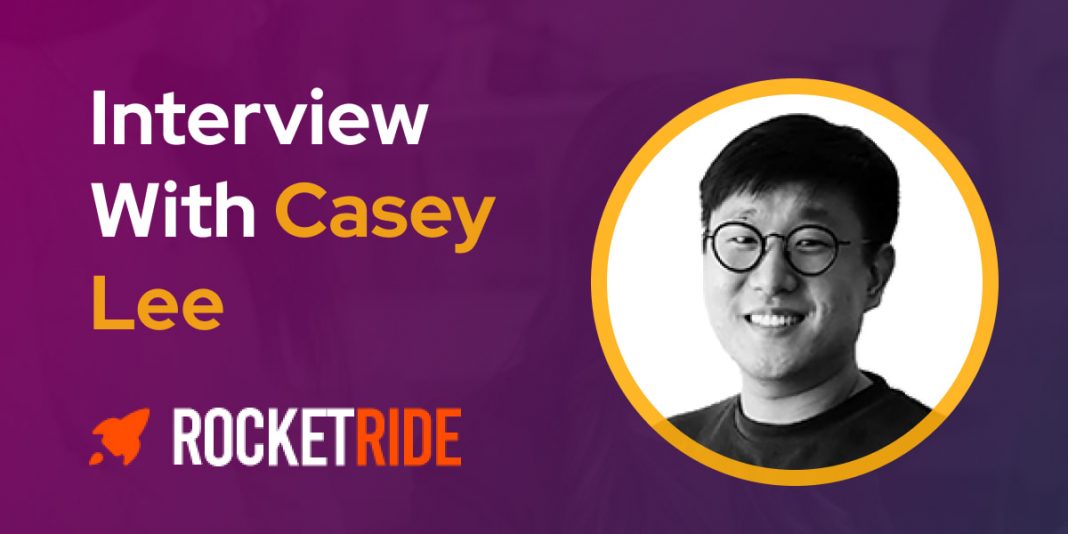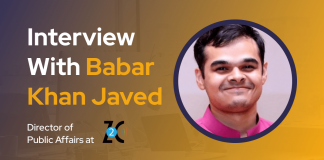Hi, Casey. Can you tell us about yourself and share some background about RocketRide Games? How did you become a Chief Marketing Officer (CMO) at RocketRide Games?
My name is Casey. I’ve been in the mobile gaming space for the past 10 years now. I started off at a company called Gamevil, which is a Korean mobile gaming studio. About six years back or seven years back, now we acquired a company called Com2us, which was our biggest Korean rival. So, I transition to play a CEO role for the U.S. operations for Com2us. By the time we launched the game, Summoners War, it did about 1.8 billion for us to date. So, it’s a very big franchise and I handled all the US operations, which included marketing production, live OPS, just about everything for the western markets.
About two years ago, I actually left the company to kind of pursue my own interests. That’s about the time that me and my partners created this company consulting company, called RocketRide Games. Our vision was that let’s bring the tools and experience to smaller studios, smaller publishers and people who don’t necessarily have the luxury to be spending all that money to get that experience or to work with partners that give them a fighting chance for great products that they make.
We wanted to make it so that money or experience was not an obstacle for them to launch their product. At the end of the day, this type of this know-how from marketing and publishing is not something that’s secret. It’s just a matter of how many games that you’ve launched. For us, across my partners and myself, we’ve launched maybe 60, 70 games.
Then we’re trying to bring that knowledge and help our partners really do have a fighting chance against some of these bigger publishers, taking the approach of spending a lot of money and pushing marketing and user acquisition to get those players. Currently, we work with many different partners but we’re actually starting to look for a way to start self-funding everything as well and then also play the role of a publisher.
How much have the consumer sentiments changed in your space during 2020 and how is 2021 going to look like?
I think, in general, with everything that’s happening in this world, it’s very unfortunate that you’re starting to see a lot of those small businesses closed down. With everyone stuck at home, they’re playing games and they’re engaging with this content on their phones. So, for us, we were seeing a lot more users and a lot more engagement per day in terms of just mobile gaming in general. We saw a big uplift for the need of, not only because there’s a big player base but there’s a need for content now.
People are hungry for content. People want variety. People want to try something new. Over the past year, you look at all the games that became viral. They’re all so different from each other. In our space, you have one or two big hits coming out every two to three years. Now, you’re seeing multiple hits coming out per year and you’re starting to see a lot of this change in terms of the space that people are trying to consume content for it. With that, we’re seeing this very big uplift.
After the pandemic, players that have been engaged with gaming are still going to be engaged with gaming. The type of gaming that’s coming out is only going to expand. As when I’m speaking strictly for the gaming industry, I see a big growth in the coming years. As our consumers are hungry for content, it means us, as providers of content, have to really work harder to bring different varieties of entertainment. That way, these consumers can engage with it without feeling that is repetitive.
So, that’s kind of like a homework that we have. It’s a problem that we’re going to have to find a solution for, in terms of getting engaging pieces of content within our games. That’s going to differentiate ourselves from the rest of the market. There is no longer this rush to copy whatever’s working and whatever’s on top kind of like just really skinny. It is about innovation and it’s about how you capture that initial engagement or that interest from these players.
In your opinion, what are the most important KPIs you use to measure customer experience benchmarks?
I think it’s the same across the whole industry. At first, it was all about monetization. It’s all about that early engagement — how well you can convert players. But, in the past three to five years of mobile gaming, I think it’s all been the same. People are understanding now that you just need to have players that are engaged and engaged for the long term. So, for now, the only KPIs that we look at —in terms of if a product works or not — is that pretension. We look at early retention, mid retention, long-term retention and everything because they all tell a different story.
If it’s high early retention, you have a product that’s at least interesting for two players. But the longer retention shows that you have a product that has depth and a lot of content that people can engage with. It’s very important for us to kind of keep our eye on the product the whole way because we’re no longer in an industry, where it’s enough to have a successful product for one to two years. It’s something that needs to last five, 10, 15 plus years for you to be able to take advantage of really building up a community and getting a foundation of users.
When you do come out with different games or different pieces of content, you’re able to hit that same core user base and kind of use that network across all of your portfolio. So, for us, it’s about how can we engage players and, at the end of the day, how can we provide entertainment so that they’re enjoying playing games. I’ve noticed in the beginning, it started with this simple innocence of let’s provide short certain engaging experiences of entertainment on your mobile phone.
But then, once we saw the potential of what the monetization can be or how much revenue we could bring in. It slowly became less about what’s fun and what’s engaging, to more, how can I take every single penny out of these people’s pockets. Slowly, I feel like we have more and more studios coming into the today’s industry, these players are becoming a lot more mature. They understand what they want from games.
Now, we’re starting to see a shift back to that innocence. In order to kind of separate yourselves and distinguish your product, you now have to be fun as well as having all of the Meta and mechanics that keep a game engaging. So, I think that’s a really good thing that we’re going to see a slowly a shift back to games being a form of entertainment, not so much this idea or concept of trying to monetize as much as possible per user.
Tell us about CX roles during the pandemic crisis as CMO. How do you measure your customer engagements and how much has the role of CMO changed in the social distancing era?
I think in terms of engagement, what makes a game successful is all about the customer experience now. A product can no longer have just a surface in terms of content. It has to have a very deep engagement because you want to make sure that there’s enough depth for customers to actually have an experience. So, customer experience traditionally is around the idea of having good content, having a customer support and making sure that the product is localized. But the mobile gaming industry has already matured. The standard, for a good customer experience of gaming, has increased over the past year. So, it’s known that it has to be at a certain level.
So, with the pandemic, I think that customer experience has become even more important because it really dictates how they consume your content with the initial experience that they get from the product. Not only that, but even, as they get more and more engaged with the product, that experience cannot change if anything has to get better. That’s where live operations come into play and live OPS needs to be a much more important in terms of how you run the game, how you provide more content and how you get these players engaged for the long term.
In a marketing standpoint and as a CMO, I think that customer experiences are always important for us as well, but we can’t really control customer experience in a product. Customer experience is more something that you do with live servicing of a product. What type of content do you have to push out? Our job is to get people to be engaged in the first place. So, what can we do to peak that person’s interest? What’s the brand messaging that we’re telling them? What are our core values of that product? Is this something that kind of solves their needs for what they are looking for in the current gaming space? Even over the past year to two years, marketing itself has evolved quite dramatically.
I think that what started with mobile gaming being the best platform for a marketer because it was so heavily data oriented. If you have data, there’s always an answer for marketing. So, it was how I can acquire the highest value players. But over the years, what I’m starting to see in terms of how my role has changed is we’re now going backwards. We think it’s great that we have user acquisition and this data to go back to. But how can we differentiate ourselves from the other products and the other companies out there that are running user acquisition? How can we message this correctly? how can we presented or wrap this so that new players and existing players are much more engaged early on?
What makes RocketRide Games different from your direct competitors and how is it different from legacy players in the workplace?
There’s one key difference between us and our competitors that are other consulting agencies. Everybody says this when they pitch themselves, but truly nobody actually practices this. That is, we really do feel like we are a part of the product and we’re part of the founding members of that product. We put just as much investment into this. As a consultant, we have this preconceived notion that consultants just come in and say whatever they have in their minds. And then it’s up to you to follow or not. But, once the product is made, as even as part of that being worked on, there’s really not much sweat investment that’s being put into with consultants.
If the product does well, great. If it doesn’t do well, they just move on to the next client or the next product. Yes, we started as consultants, but we were trying to find ways to even provide funding to these partners. We are creating this relationship with all of our partners, with all of our studio, with all of our publishers. In the sense, we’re creating almost like an ecosystem or a network of companies that can provide great products to our consumers at the end of the day. Our goal is not how can we get money up front. Our goal from the get-go is how can we make great products and great brands. That’s it. Because if you make a great product and a great brand, money will follow and everybody’s going to be happy.
How should CMOs gear up while working at home, in contrast to working in person?
Actually, we started off from working at home. We always believed that working remotely and having a team across the world don’t have any real disadvantage in general. We live in a world, where it’s so easy to communicate with people across the world. Time differences probably became the only obstacle that we have. But no communication should be very easy. It’s just how you go about with the communication.
If one side is not willing to put in that much effort into communicating, it’s going to be difficult to communicate. But if both sides are willing to put into effort, there shouldn’t be any issues with working with somebody across the world. In terms of marketing, one of the things that we do miss is the ability to toss ideas back and forth and hear real-time feedback when you are all in a room brainstorming a concept. But, at the same time, there are ways to overcome that. I feel there’s really not much difference from working remotely versus working next to each other physically in place.
What is the biggest lesson you learned in 2020?
The biggest lesson I learned in 2020 is, I think, the same lesson that everybody learned. It’s that you can never expect what’s to come. But at the same time, a good lesson that I learned was how you react to these situations. I think there’s a good way to go about things and there’s a bad way to go about things. In general, when you’re exposed to these types of situations, you’ve actually experienced them before the next time. It’s I always think personally. It’s better because the next time we’ll be ready.
What is your favorite CX metric?
I don’t really have a favorite CX metric. The reason why I say this because I am somebody that believes everything is so equally important. You have to do everything well. It’s not a matter of just picking one and trying to go after that. So, for me, if I put a favorite into something, my focus turns to that specific area of engagement. It was a matter of looking at all of the metrics, like how people were engaging our content and consuming our content throughout the whole step away. I built on my career that way. I can’t really go back and say this is my favorite metric to track the performance of consumer experiences within our product.
Do you have anything you want to add to this topic?
I can’t stress enough that we’re in an industry that is supposed to provide entertainment, especially during these times when people are stuck at home. It’s our job to provide them an escape. When you have people that are too focused on one goal, like monetization or making money, make sure that you make a good product. It’s okay to have those thoughts. But if we’re not bringing entertainment, there’s really no use to being in the gaming place. This is just a strictly mobile industry. We have to make sure that we’re doing everything and investing everything into making that product and that experience as great as possible.






